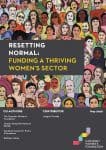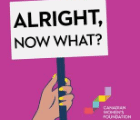International Women’s Day 2022
As we mark this International Women’s Day, there’s never been a more important time to move for gender justice: for fair and livable wages, for freedom from violence, for access to affordable housing and childcare, for leadership, for opportunities to thrive.
We have seen growing injustices: rising risk of gender-based violence, increased caregiving demands, devaluing of “women’s work”, and widening poverty gaps.
They’ve been even worse for women and gender-diverse people who face additional barriers due to racism, immigration status, ableism, and financial instability.
Make Moves for Gender Justice
Take More Action
What is Gender Justice?
Global Fund for Women defines it as the redistribution of power, opportunities, and access for people of all genders. Achieving gender justice means that all women, girls, and Two Spirit, trans, and non-binary people get the full rights, support, and respect they deserve. This includes paid fair and livable wages, safety from violence and harassment, representation in all levels of decision-making, and every opportunity to thrive.
Pursuing gender justice means pursuing a wide range of systemic changes for social justice, including an end to racism, poverty, and other forms of discrimination and barriers. As Third Wave Fund notes, “gender justice can only truly be achieved when all forms of oppression cease to exist”.
Two thirds of Canadians (64%) know a woman who has experienced physical, sexual, or emotional abuse.
Only 1 in 6 people in Canada are very confident that they would know what to say or do to support someone experiencing sexual or emotional abuse.
Unemployment for racialized women rose to 10.5% compared with 6.2% for white women.
“I worry that hybrid work will make women less visible.”
46% of mothers say it’s been exhausting trying to balance work and childcare responsibilities.
“Many women left my workplace due to family responsibilities, especially those facing multiple barriers.”
“Every single chapter of my life is suffering because I am overwhelmed and under-supported.”
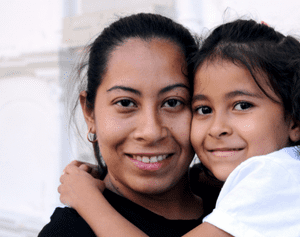 Your investment in gender justice has far-reaching impact:
Your investment in gender justice has far-reaching impact:
 “We follow the path set by Rosemary Brown and other visionary feminists not simply because the goal of gender justice is a worthy one. It’s the solution to the most pressing social concerns we face today.” – Paulette Senior, President and CEO, Canadian Women’s Foundation
“We follow the path set by Rosemary Brown and other visionary feminists not simply because the goal of gender justice is a worthy one. It’s the solution to the most pressing social concerns we face today.” – Paulette Senior, President and CEO, Canadian Women’s Foundation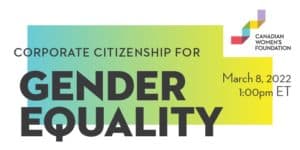 Work has shifted dramatically. How is your workplace adapting to hybrid work models, supporting employee caregiving needs, meaningfully advancing diversity and inclusion, and creating safe workplaces? There has never been a more critical time to push gender equality forward as we navigate these important issues.
Work has shifted dramatically. How is your workplace adapting to hybrid work models, supporting employee caregiving needs, meaningfully advancing diversity and inclusion, and creating safe workplaces? There has never been a more critical time to push gender equality forward as we navigate these important issues.
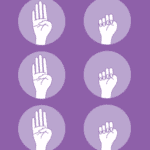 Learn what you can do to support someone who may be experiencing gender-based violence.
Learn what you can do to support someone who may be experiencing gender-based violence.